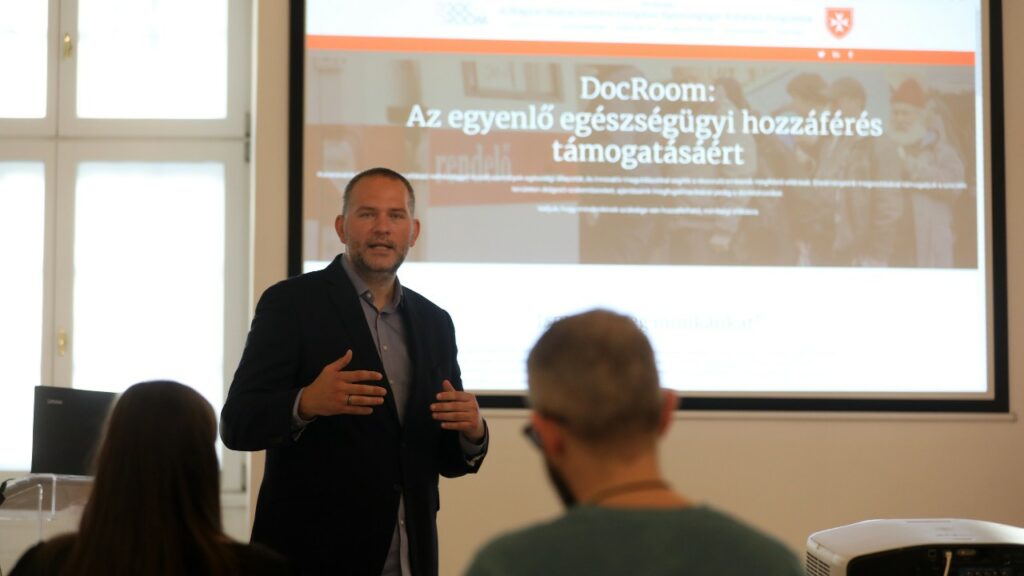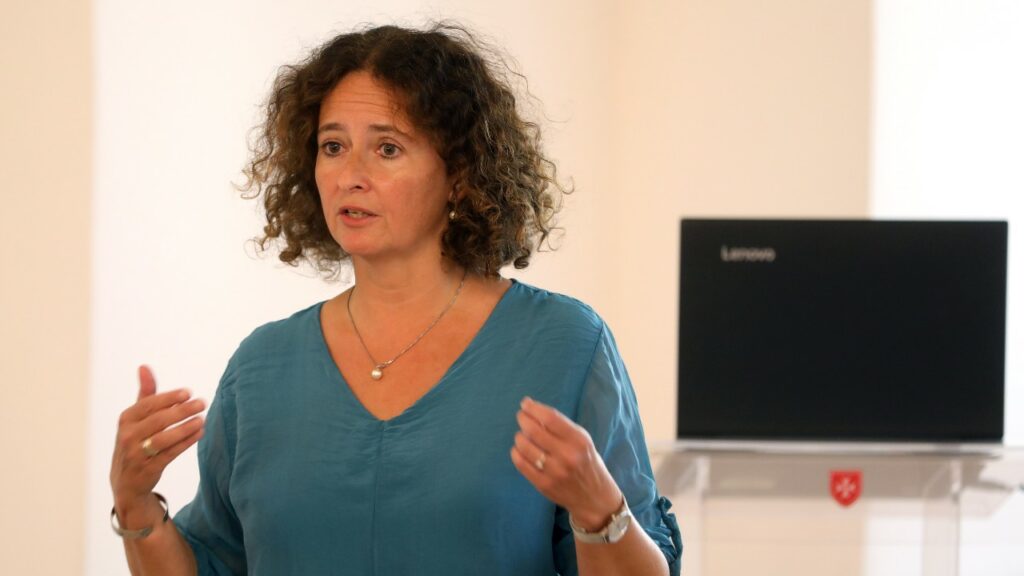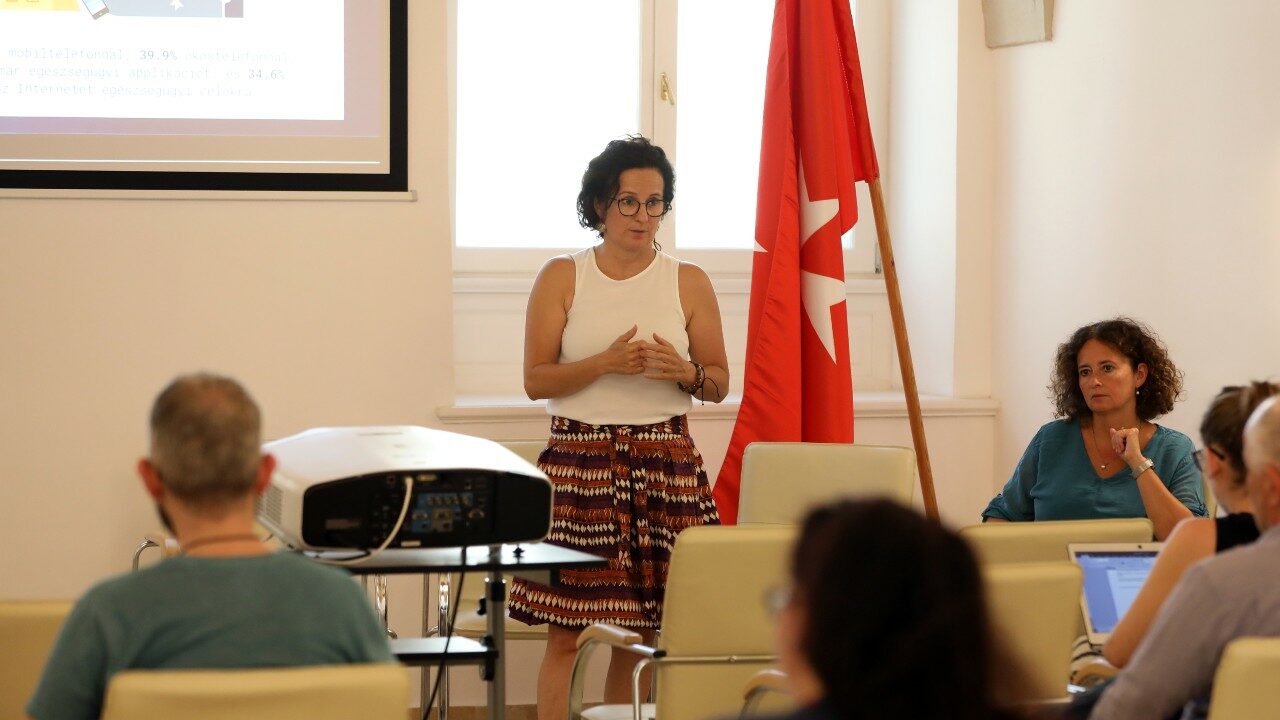Assessing the access to digital devices of people experiencing homelessness, investigating their use of the internet for health purposes, the use of telemedicine in homeless health care, and the launch of innovative screening programs – the DocRoom program of the Hungarian Charity Service of the Order of Malta started to establish research activities in these areas. The aim of the initiative is to provide a more accurate landscape of the development possibilities of homeless persons’ health care and lays the foundation of the hybrid care model, which covers a flexible, coordinated operation of in-person and online health consultations, as well as care managed by a mobile medical outreach team.
In recent years, digital devices have appeared more and more widely in the field of healthcare and the COVID-19 pandemic intensified this process even more. The Digital Health Research Group of Semmelweis University and the Hungarian Malteser Charity Service are working together for several years to assess how digital technologies, telemedicine, or smartphone-based platforms can improve healthcare access and care for vulnerable groups such as homeless people.
“The results of the research projects are very important to us. Based on this evidence, we can introduce innovations in the system. Our goal is to be able to effectively transform the care system in such a way that both the quality of services and the access to them improve at the same time,” emphasized Emília Morva, head of the Central Hungarian Region of the Malteser Charity Service.

Dr. Sándor Békási (Photo: Bence Kovács / MMSz)
“The introduction of the hybrid form of care in the health portfolio of the Charity Service is already based on the results of our research. As part of this, we are launching a holistic primary care model, in which face-to-face ambulatory services, mobile medical outreach teams, and online visits form a completely flexible, interoperable system,” said Dr. Sándor Békási, chief physician of the Health Center of the Malteser Charity. The specialist emphasized that the model serves both the care system and the clients being cared for.

Dr. Zsuzsa Győrffy (Photo: Bence Kovács / MMSz)
“We have already assessed three areas in the framework of the joint research: the attitude towards telemedicine among homeless people, access to digital devices, and the use of the Internet for health purposes, and we have also provided a professional background for the intensive piloting of telemedicine for both social institutions and participating physicians. Based on this, we believe that digital healthcare can also be used in the medical care of homeless people,” added Dr. Zsuzsa Győrffy, associate professor at Semmelweis University’s Institute of Behavioral Sciences and head of the Digital Health Research Group. Among the most important findings of the completed research project, she highlighted, that homeless people are equally open to telemedicine services as the general population. 69.6% of homeless people have a mobile phone, 34.6% have a smartphone, and 10.8% have already used a mobile health application. In the 3-month telemedicine pilot program, a total of 55 patients from 4 homeless shelters completed the program with the assistance of three physicians and one social worker from each participating shelter.
In the framework of the DocRoom research program, in addition to innovative forms of care, the Malteser Charity Service also plans to investigate the effectiveness of screening and other prevention tools, which can improve both the health prospects of homeless people and pave the way for improving the health of other disadvantaged social groups.
